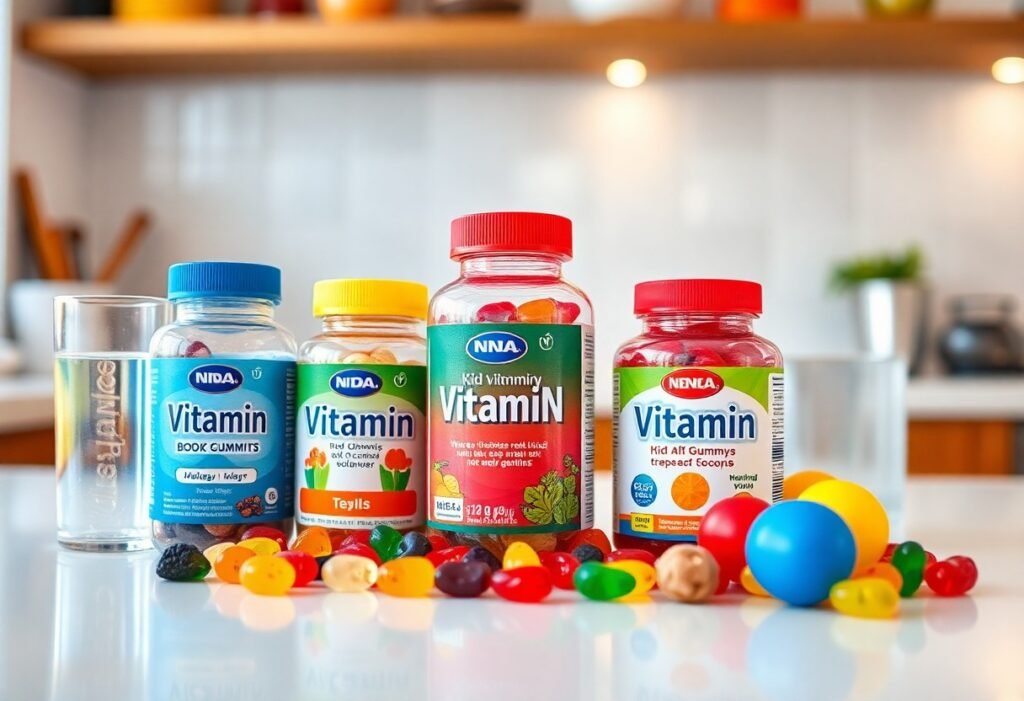
Vitamins play a vital role in your child’s growth, development, and overall health. As a parent or caregiver, it’s important to ensure that your kid gets the necessary vitamins on a daily basis to support their active lifestyle and boost their immune system. Here’s a guide to help you achieve this goal efficiently.
First, identify the imperative vitamins that your child needs. The most important vitamins for kids aged 1 to 18 include Vitamin A, Vitamin C, Vitamin D, Vitamin E, and the B vitamins (B6, B12, Thiamin, Riboflavin, Niacin, Folate, and Pantothenic Acid). Each of these vitamins plays a unique role in supporting your child’s health, from eye development and immune function to energy production and brain health.
The next step is to analyze your child’s diet. Make sure to offer a balanced diet rich in fruits, vegetables, whole grains, proteins, and healthy fats. Foods like leafy greens, citrus fruits, dairy products, nuts, seeds, and lean meats should be staples in their meals. If your child enjoys snacks, opt for healthier choices like carrot sticks, yogurt, or fruit that can contribute to their daily vitamin intake.
If you find it challenging to provide all the necessary vitamins through diet alone, consider incorporating a daily multivitamin. A good quality multivitamin can fill in the gaps and ensure that your child receives the vitamins they may not get from their food. Consult with a pediatrician to help you choose an appropriate option tailored to your child’s age, dietary restrictions, and health needs.
In addition to diet and supplements, encourage your child to adopt healthy habits that can naturally increase vitamin absorption. For example, vitamin D is imperative for calcium absorption and can be gained through sunlight exposure. Aim for at least 10 to 30 minutes of sun exposure several times a week, depending on your geographical location and the season. Just be sure to use adequate sun protection for younger children.
Also, eating meals together can be a great way to encourage your child to try new foods. You can make mealtime enjoyable by involving your child in the cooking process. This not only piques their interest in healthy eating but also allows them to experience different textures and flavors that are vital for good vitamin intake.
Monitor your child’s health and energy levels. If you notice signs of fatigue, irritability, or frequent illnesses, it may indicate that they’re not getting enough vitamins in their diet. Discuss any concerns with your pediatrician. They may suggest a blood test to check for any deficiencies and recommend practical ways to address these issues.
Lastly, keep learning about nutrition as it evolves. Stay updated on new research and guidelines regarding children’s health recommendations. This knowledge will empower you to make informed decisions about your child’s dietary needs and ensure they grow up strong and healthy.
